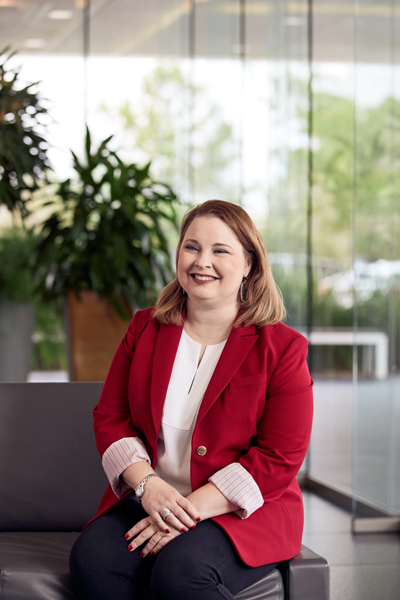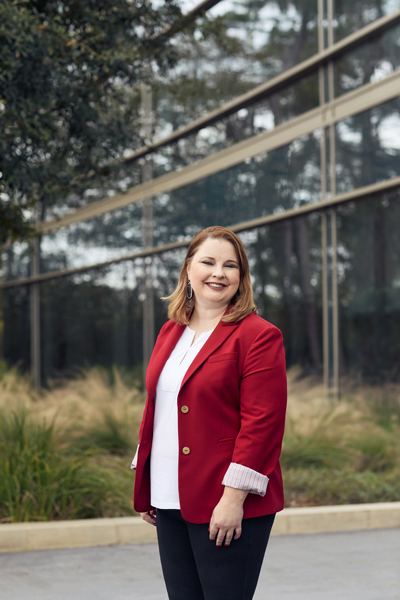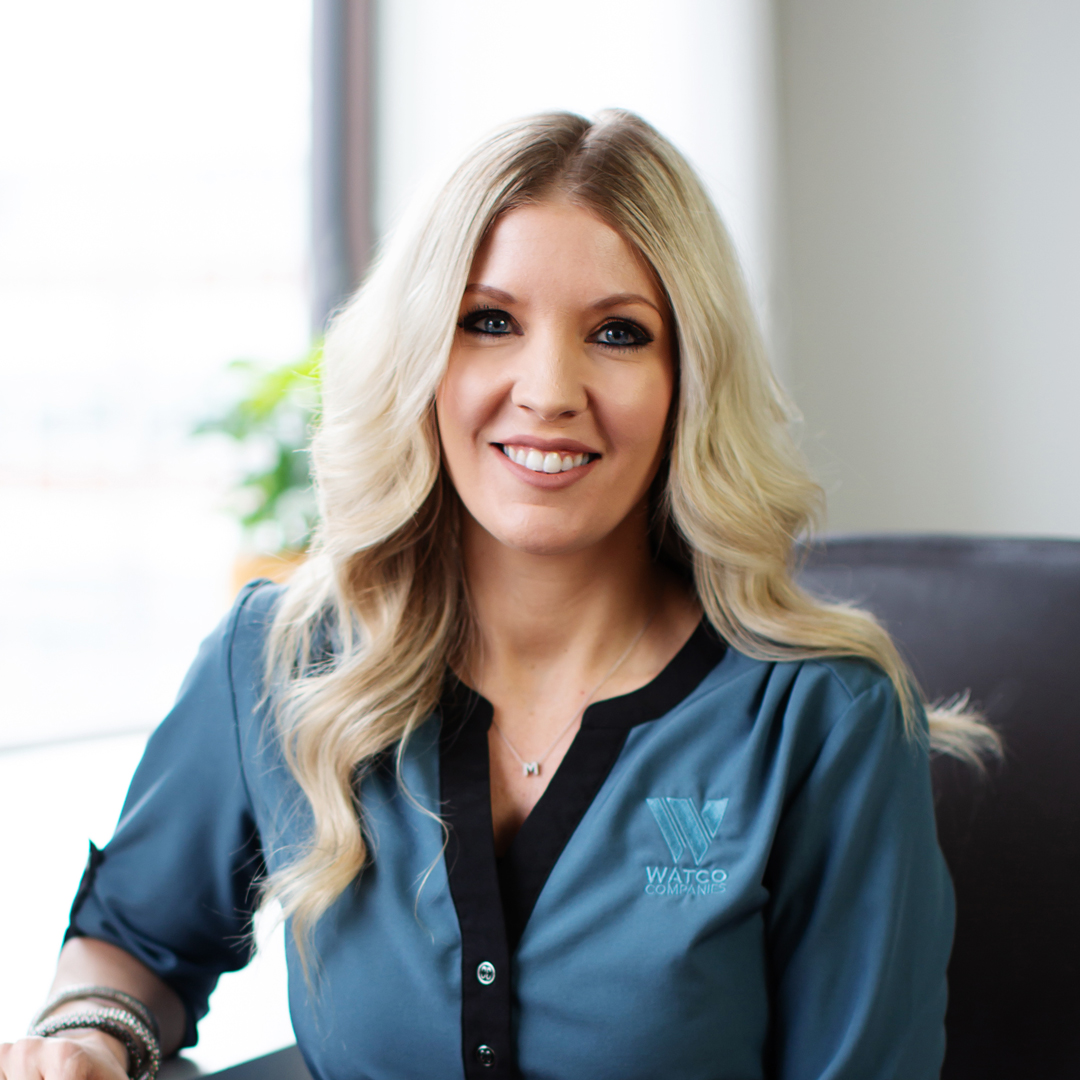|
Getting your Trinity Audio player ready... |
When Charlotte Pomasl was first bitten by the accounting bug during an introductory course at St. Mary’s University, one of the things she loved was the diversity of opportunities. After all, she explains, accountants are vital to every type of industry.
At the end of her introductory corporate tax course during the summer, she knew that she wanted to specialize in taxation and went on to receive her master’s in taxation from the University of Texas at Austin. Pomasl focused on tax return preparation early on in her career while working at Deloitte and AIG American General.
As she moved up the ranks, she learned that being an effective tax executive depends on learning your client’s or employer’s business and providing advice that is relevant to daily operations.
“To be a good tax advisor, you have to really understand the business and the challenges that the business faces,” Pomasl says. “And to provide leadership, you also have to be a good communicator. You have to take something that’s very complicated and explain why management should care.”
Both were integral to the start of her leadership as vice president of tax at Newpark Resources, located in her hometown of The Woodlands, Texas. In addition to Deloitte and AIG, Pomasl also built her international tax expertise at Chicago Bridge & Iron as well as in Ernst & Young’s International Tax Services practice as a senior manager.

Then, in 2012, she had the opportunity to be the international tax senior manager for the US arm of French multinational oil and gas company TOTAL. For the next five years, she streamlined processes while immersing herself in the tax issues of the oil and gas industry.
“TOTAL prepared me very well for my job at Newpark. It is a fast-paced environment where communication with both US and French executive management is key,” she explains. The role gave her a new perspective on communicating complex tax issues to executives. “Not only are you explaining a different country’s tax laws to colleagues overseas, but you also have to explain the impact succinctly, which can be a challenge when dealing with complex tax law.”
And when Newpark approached her about joining in 2017, then as its director of tax, she quickly found that they were interested in her not just for her expertise in the industry, but also for her ability to navigate cultural barriers.
“One of the first challenges I faced when arriving at Newpark was improving the morale of the tax department,” she explains. “Tax is a demanding profession, and overtime and deadlines can make it difficult to retain staff. My challenge was reducing overtime and understanding the needs of my team to improve morale.”
To tackle this challenge, Pomasl scheduled one-on-one sessions with all members of her team from her direct reports to entry-level positions, asking each a set of questions about what they liked and did not like to identify common themes and areas for improvement.
A key measure was empowering the tax team to manage their schedules. “I don’t like the term work/life balance,” she says. “I think on any given day, work can sometimes take more time, and other times, life outside of work takes more of a priority.”
Another initiative was making sure the the tax department had more interaction with other groups, rather than siloed. She also introduced weekly team meetings. “I wanted to get to know my team, and I wanted them to get to know me,” Pomasl says. “I always tell people that I’ll trust them until they give me a reason not to.”
Building a stronger culture in her first year was integral to the company, particularly when they were hit with two major challenges. First was during and in the aftermath of Hurricane Harvey in August 2017, during which she and team members bonded through crisis and as others left for work closer to their homes. The remaining tax team really connected as they worked through deadlines and a large acquisition.
The next challenge was when the Tax Cuts and Jobs Act of 2017 was enacted later that year. “This was on December 22, which meant that for our 2017 financial statements, we were going to have to understand and reflect the tax impact of all these tax law changes,” Pomasl says.
From then on it was nonstop meetings and phone calls, working feverishly to understand how to apply the new tax laws. “I don’t think any tax professional had a great Christmas that year,” Pomasl jokes.

Nevertheless, she made a point to boost team spirit, by putting up holiday decorations to make the office environment more festive. And she focused on being able to explain the changes to management.
“At this point in my career, it’s not about number crunching; it’s about being able to spot when there’s an issue, being able to explain what the issue is, what the risk is, how to fix it, and why we should care about it,” she explains.
One tricky item the new act introduced was GILTI, a law that effectively ended the deferral of US taxation on foreign earnings. Because GILTI impacts a company’s effective tax rate, it was critical to understand the rules quickly and explain the tax implications to management.
Since those early hurdles, she’s focused on continuing to streamline processes. Pomasl has introduced new technology to automate Newpark’s tax provision process, focusing on value-added projects and working more efficiently to manage the team’s overtime without sacrificing accuracy. She also negotiated to outsource filing state returns, freeing up her team for more critical value-added work.
Pomasl has also continued to check in regularly to make morale a focus. “There’s so many things that would be called low-hanging fruit, but I believe these things have really made a difference,” she explains. This includes providing the team with the necessary technology to efficiently and effectively work, expanding training opportunities, decorating for various events and holidays, and making the tax area a warm and inviting place.
“My philosophy as a leader is that when things go well, my team gets all the credit,” Pomasl explains. “It’s my job to ensure they have the tools they need to do their job and to remove obstacles. I strive to create a safe environment where my team can take on new challenges, make mistakes, and learn from them. To me, the best part of having a leadership role is mentoring my team.”

